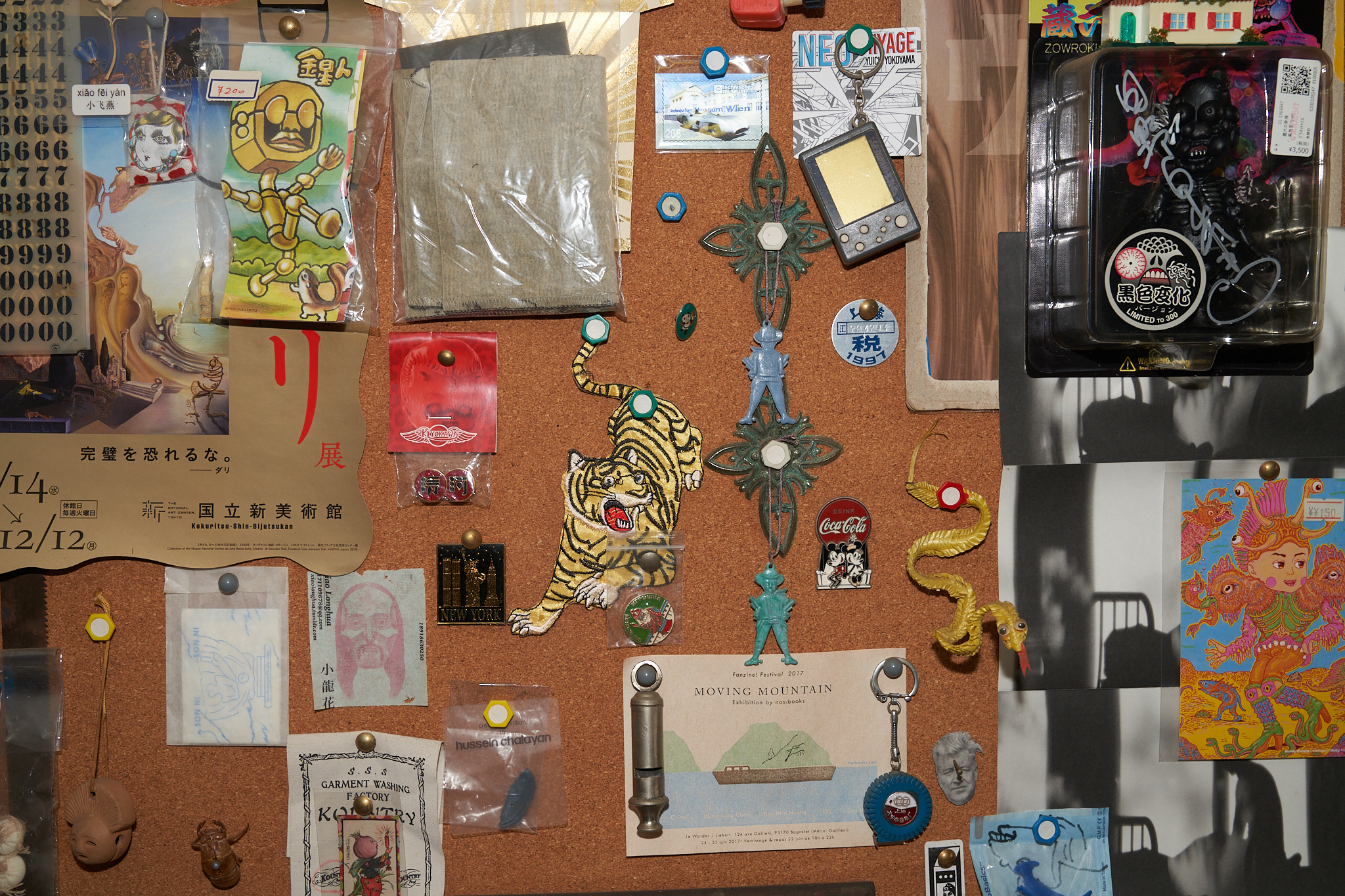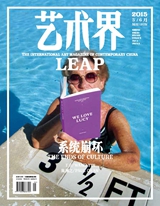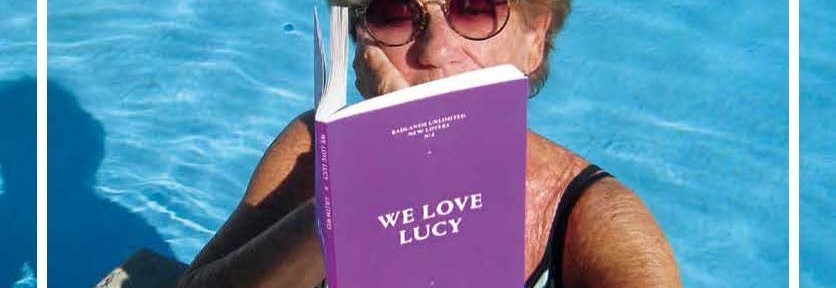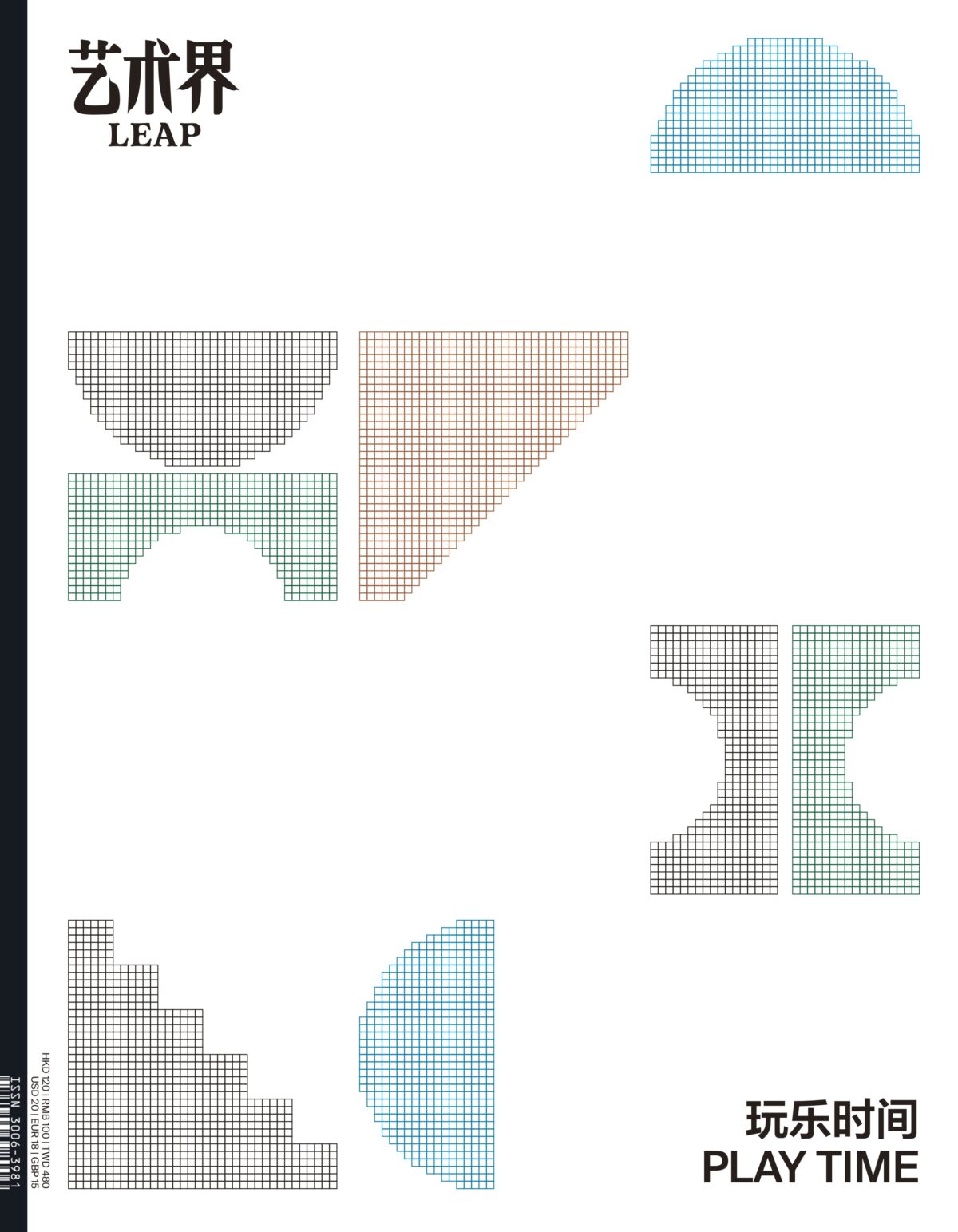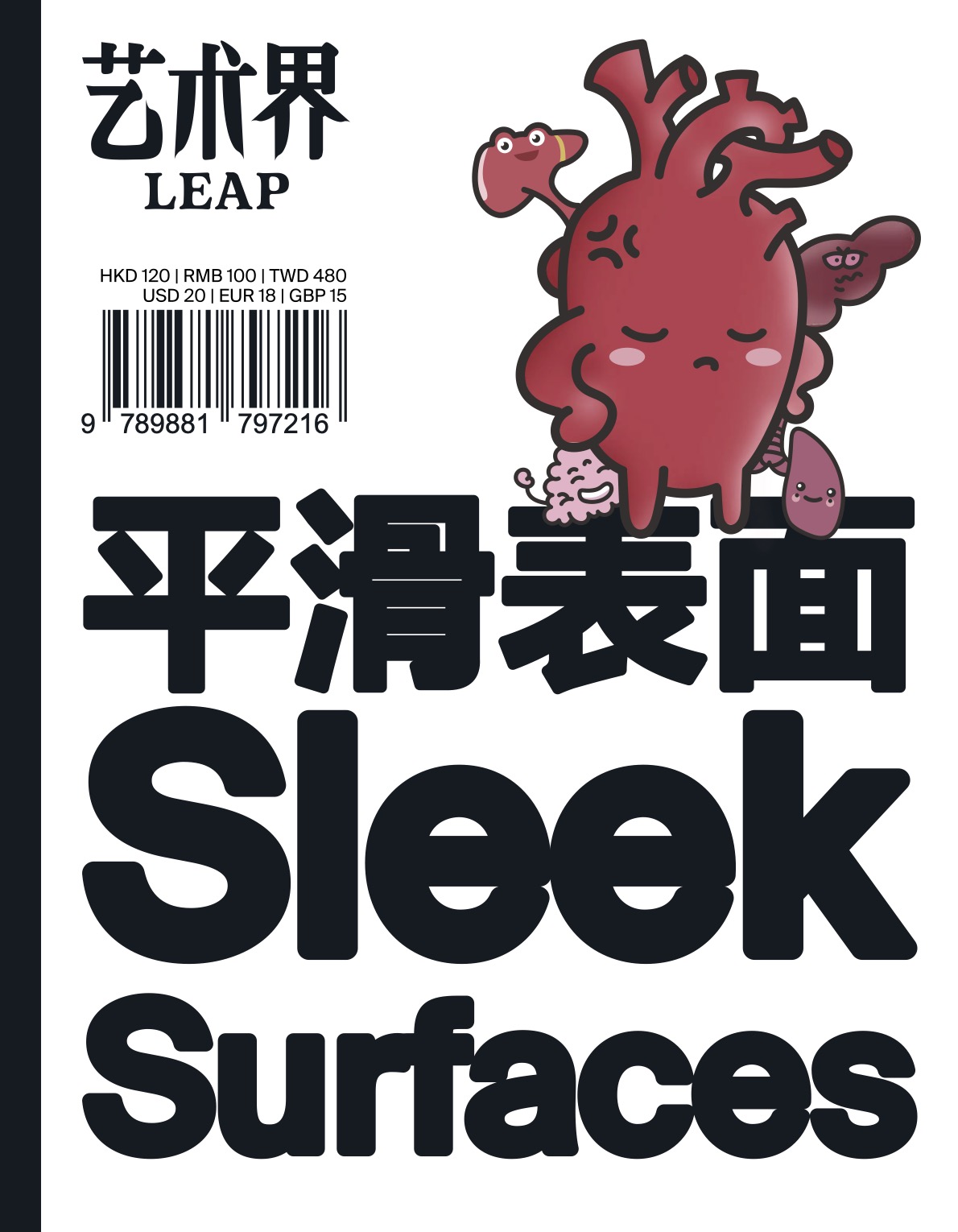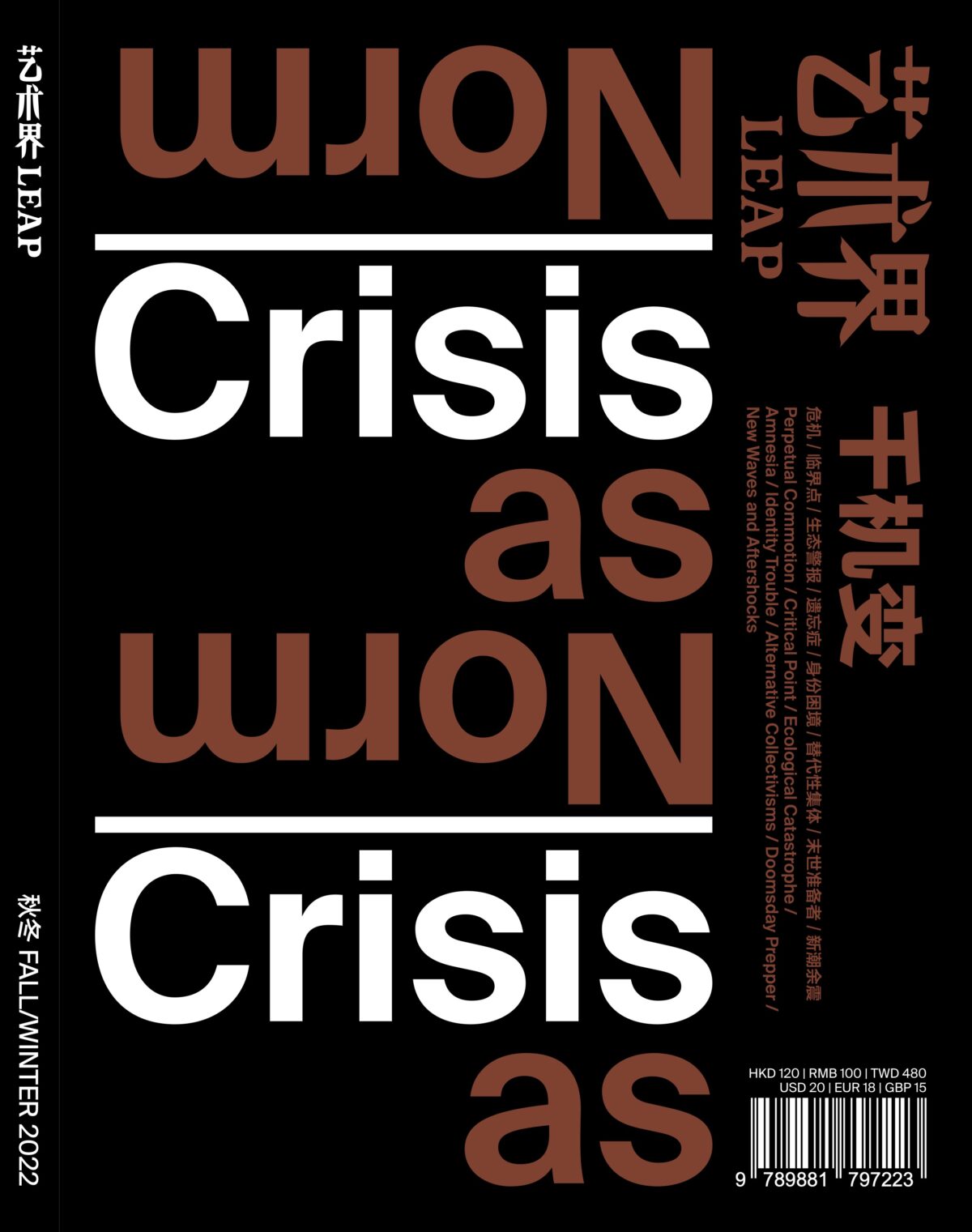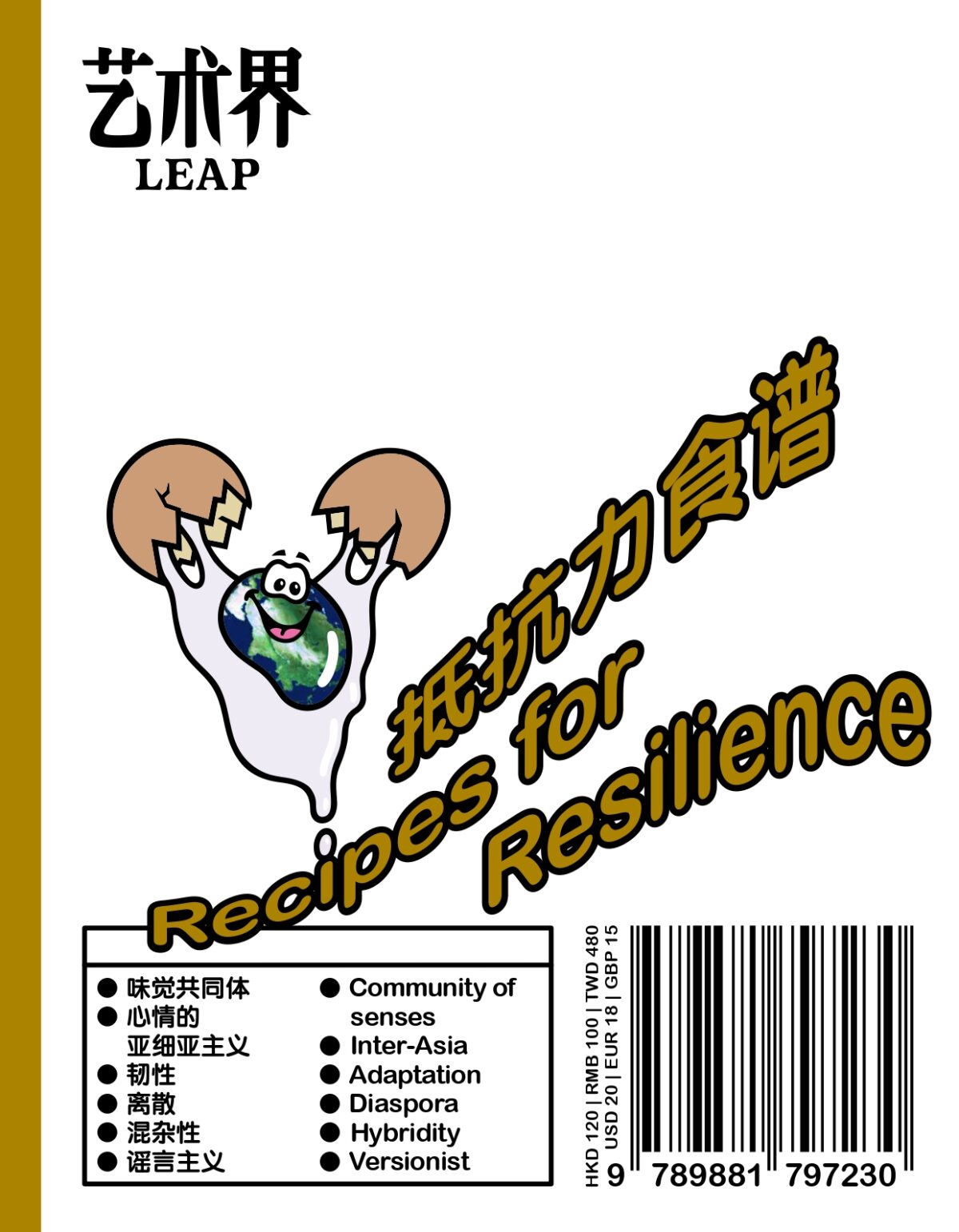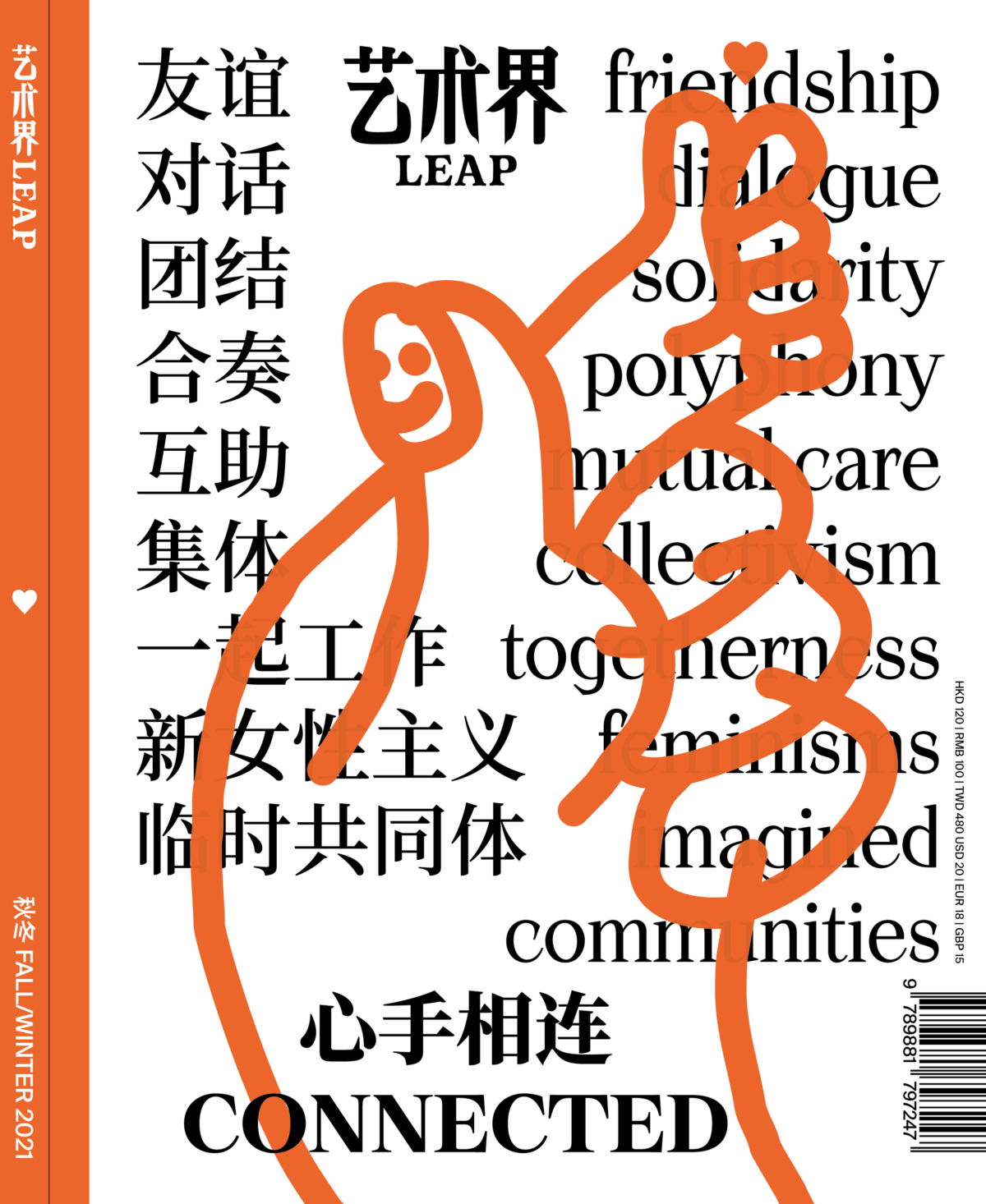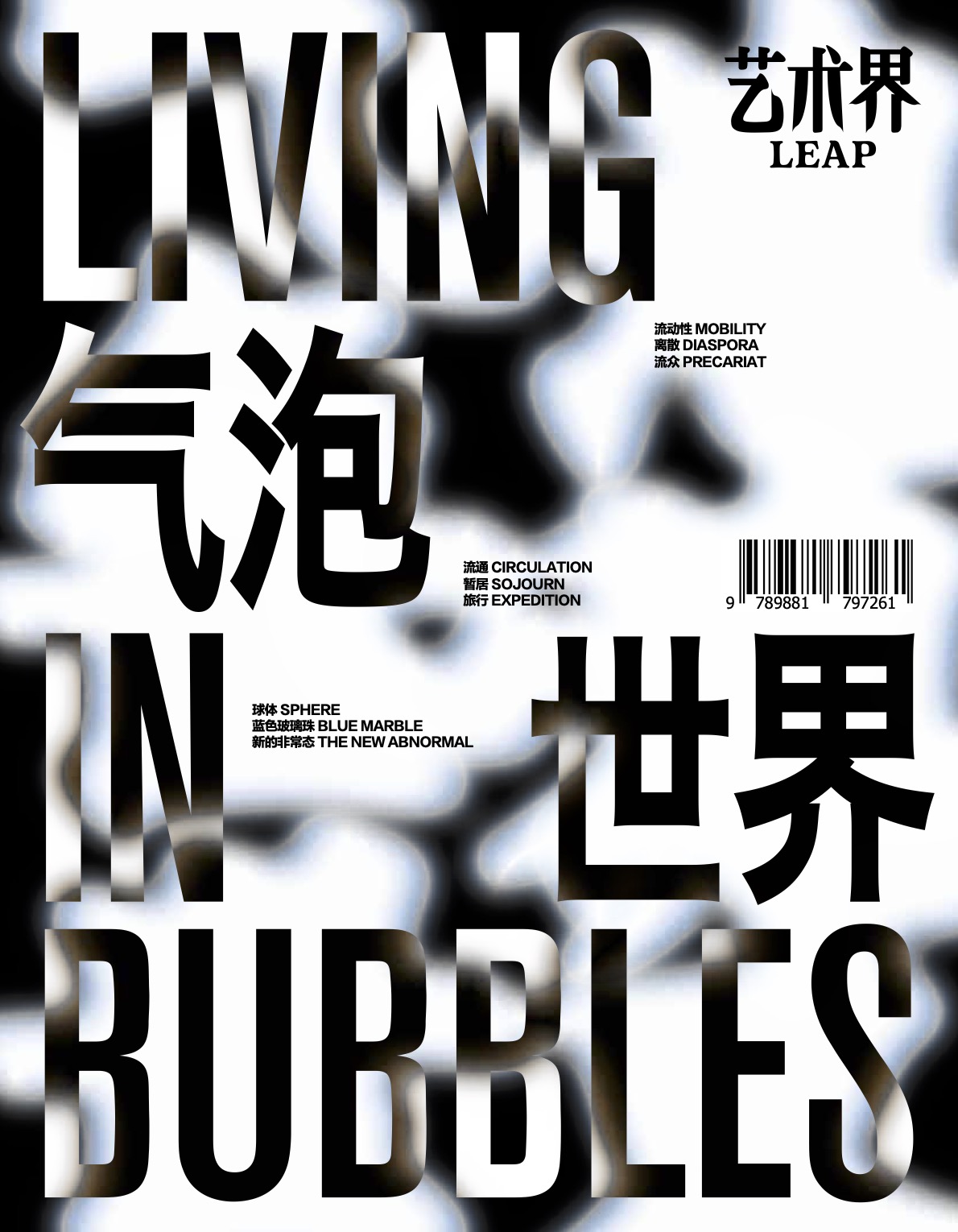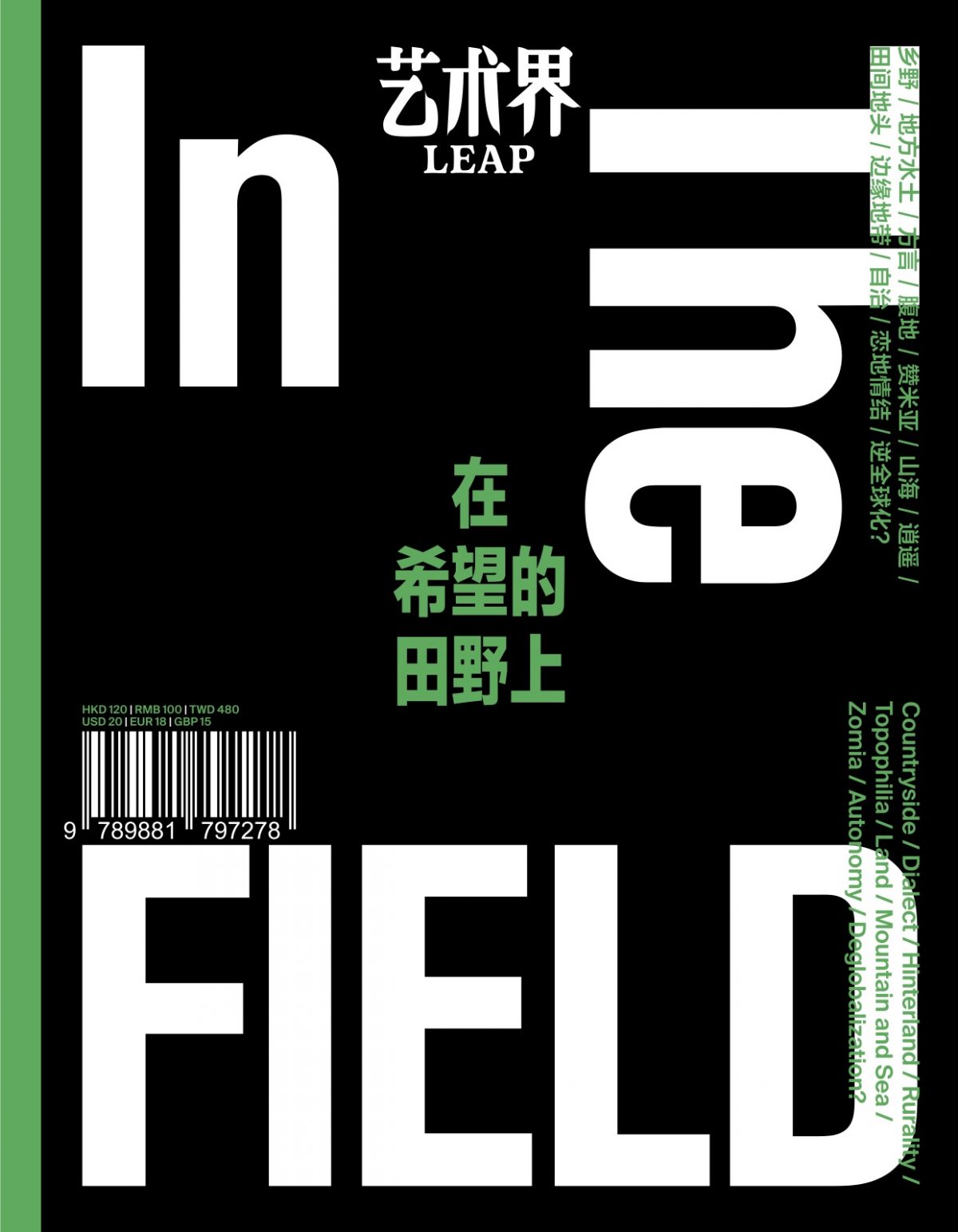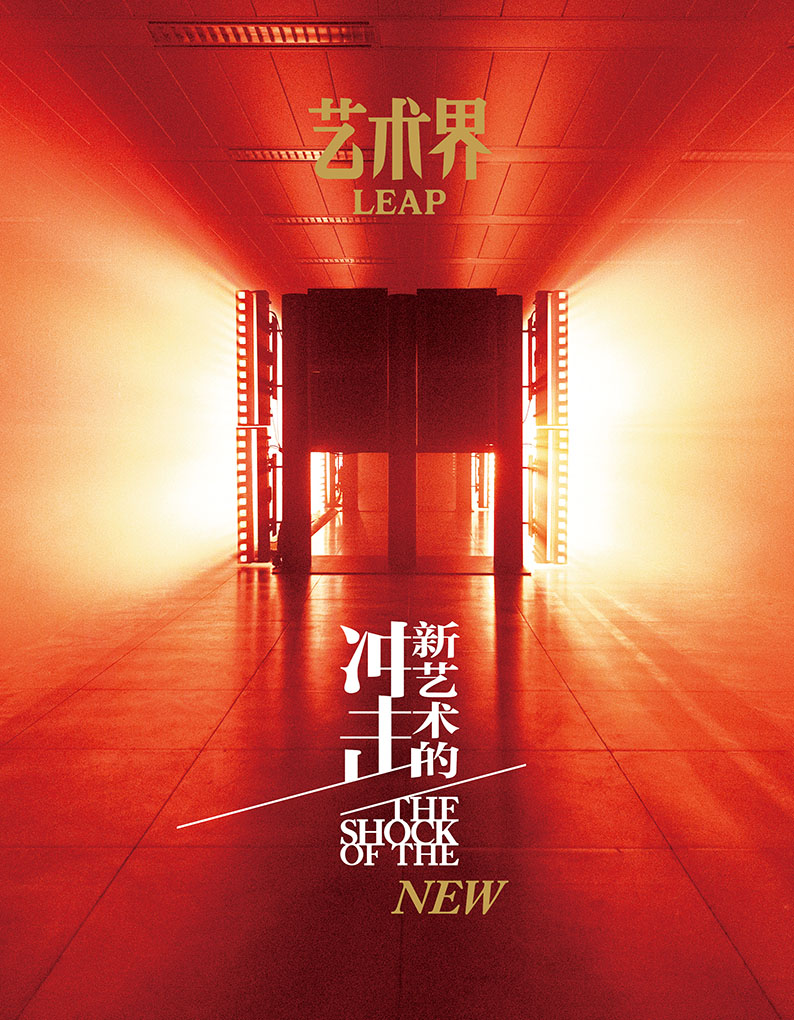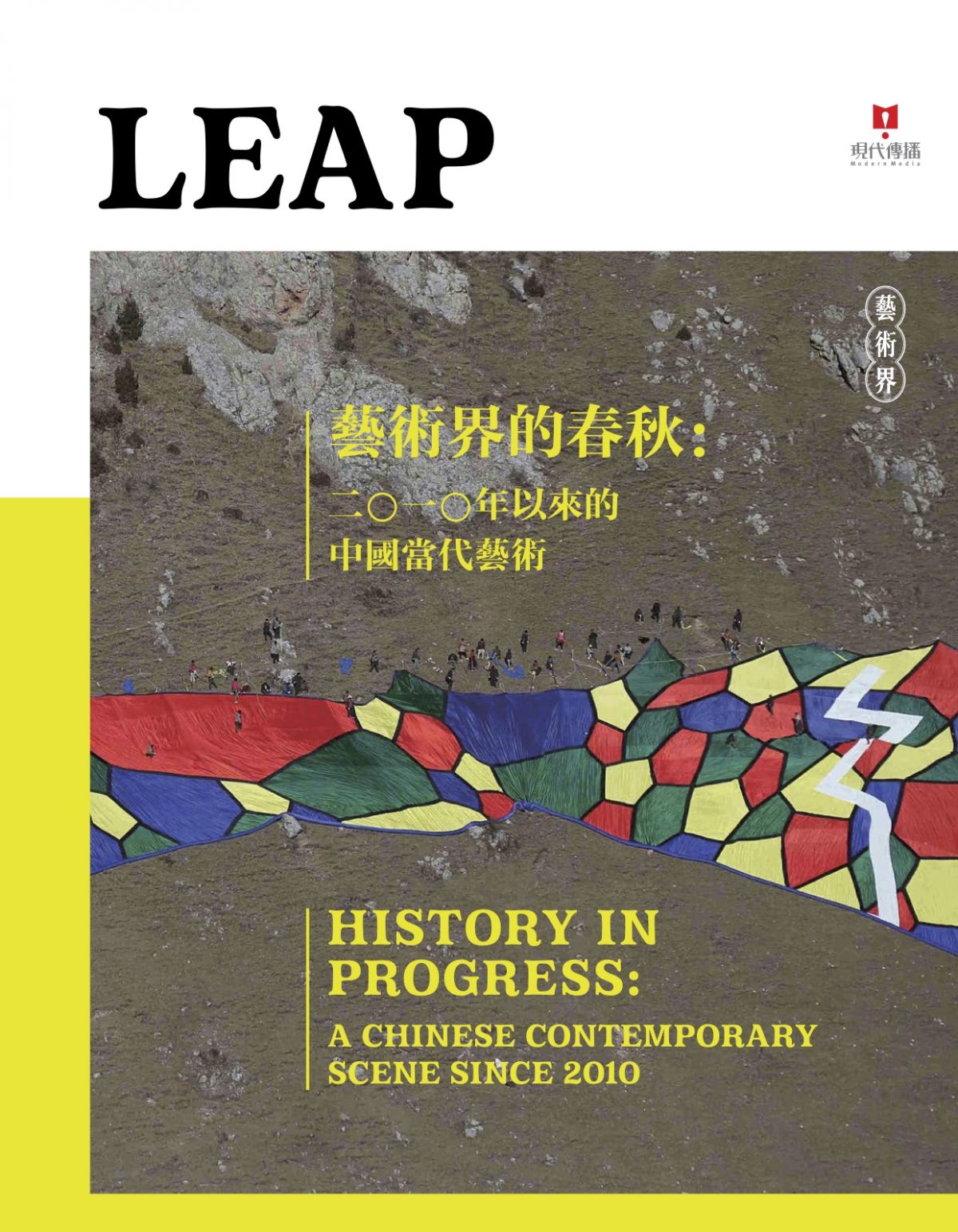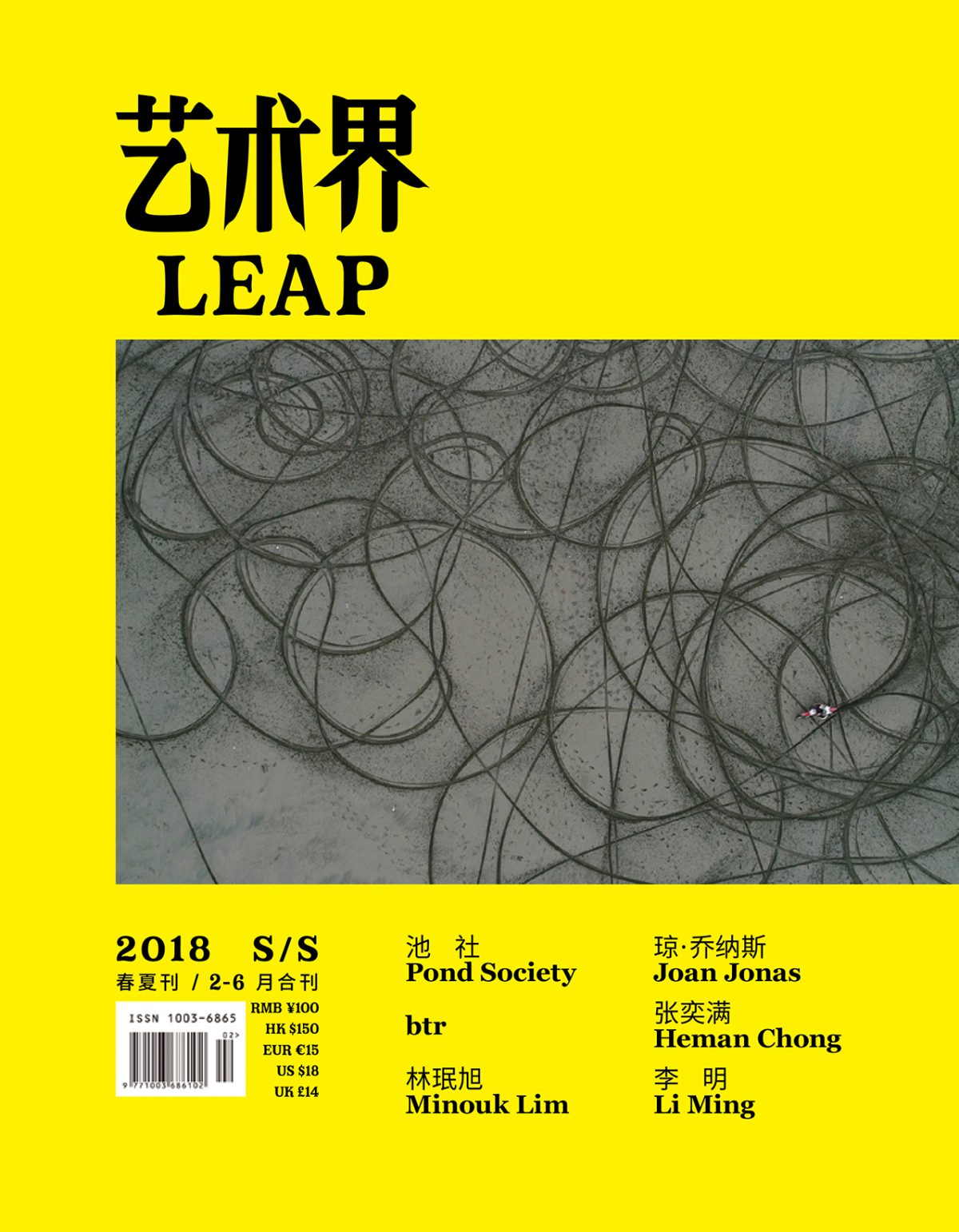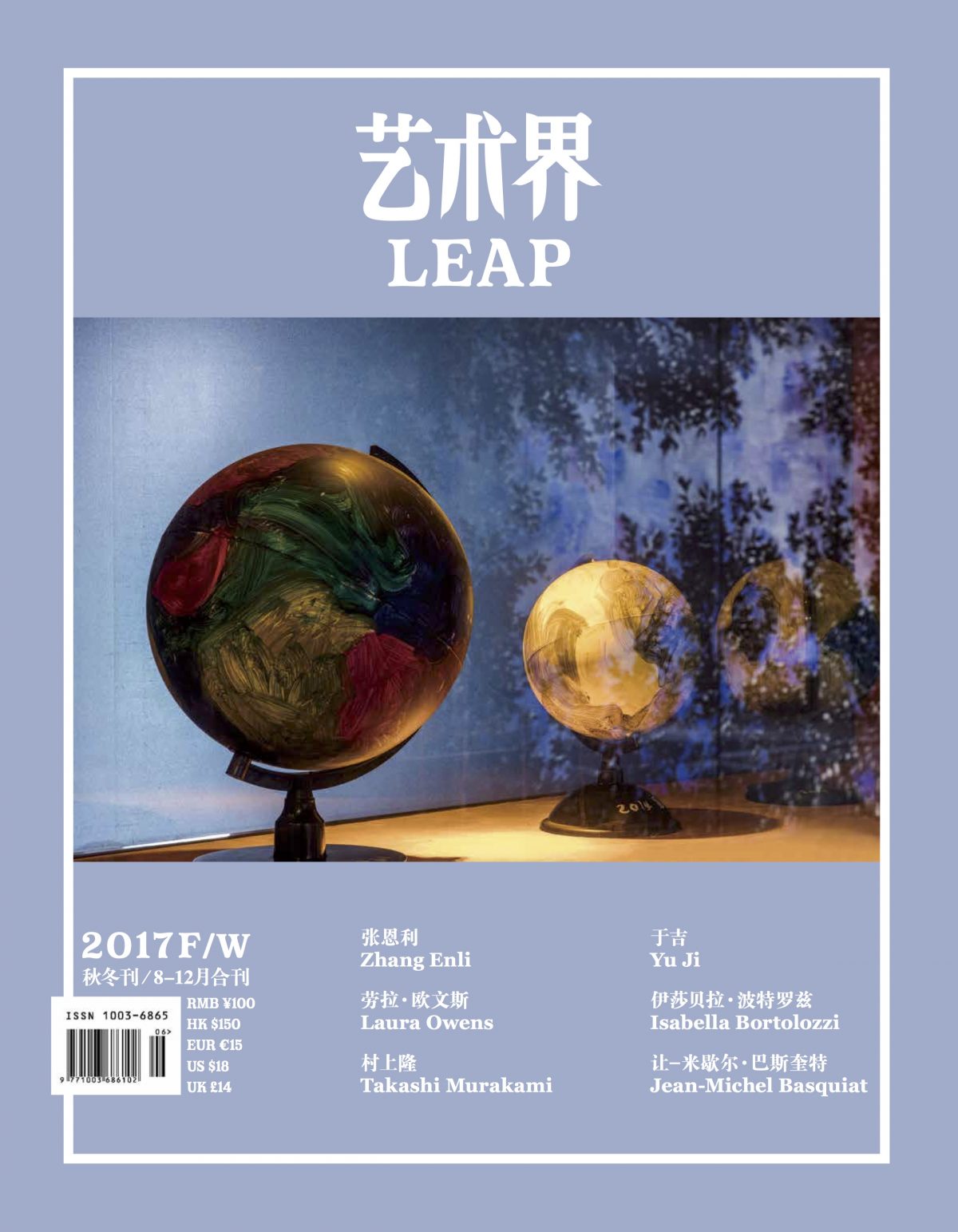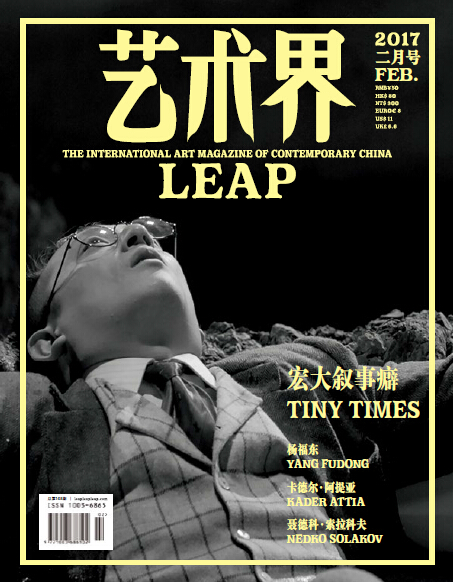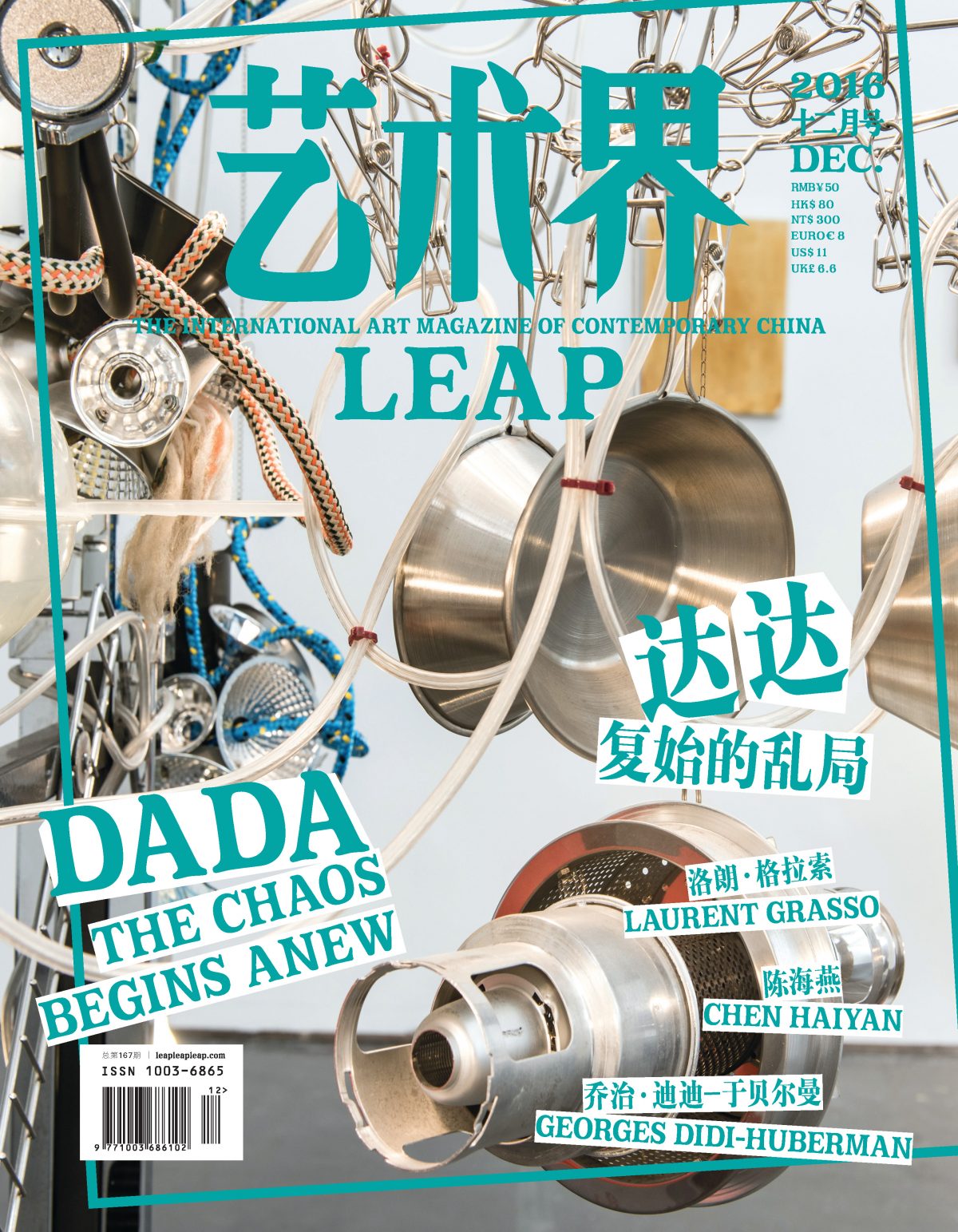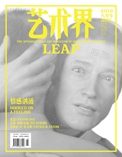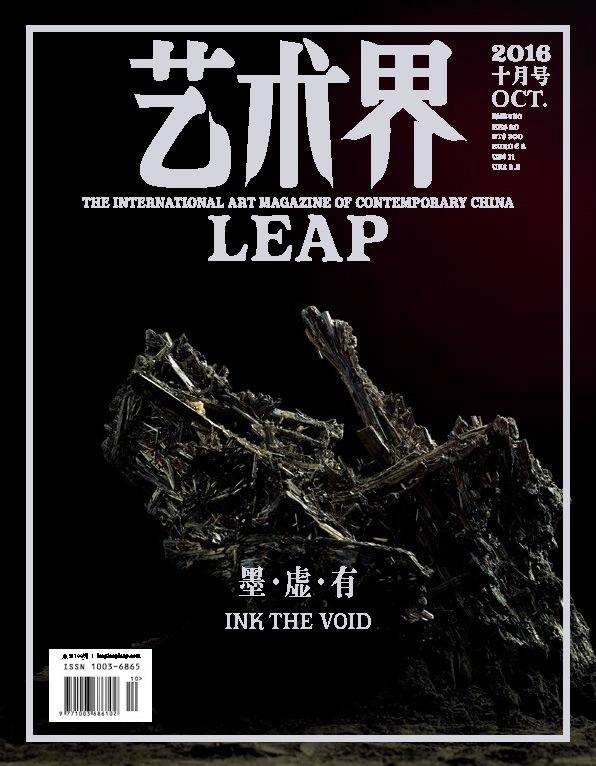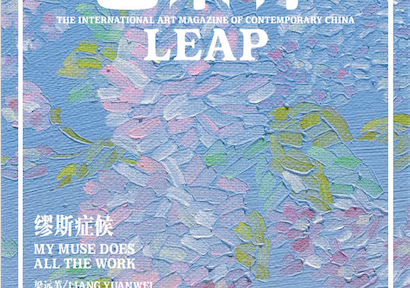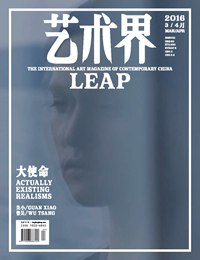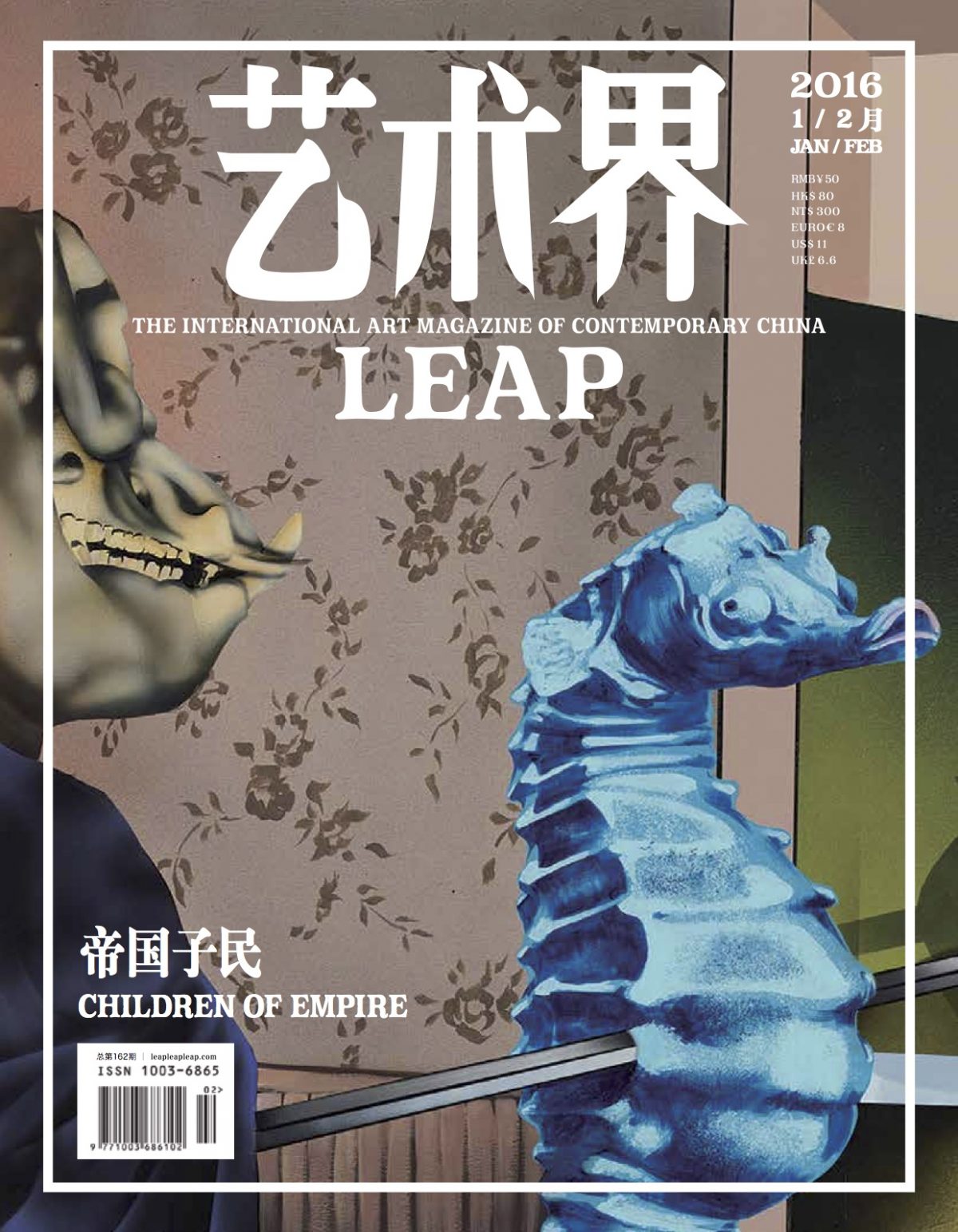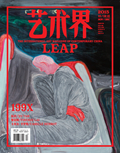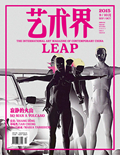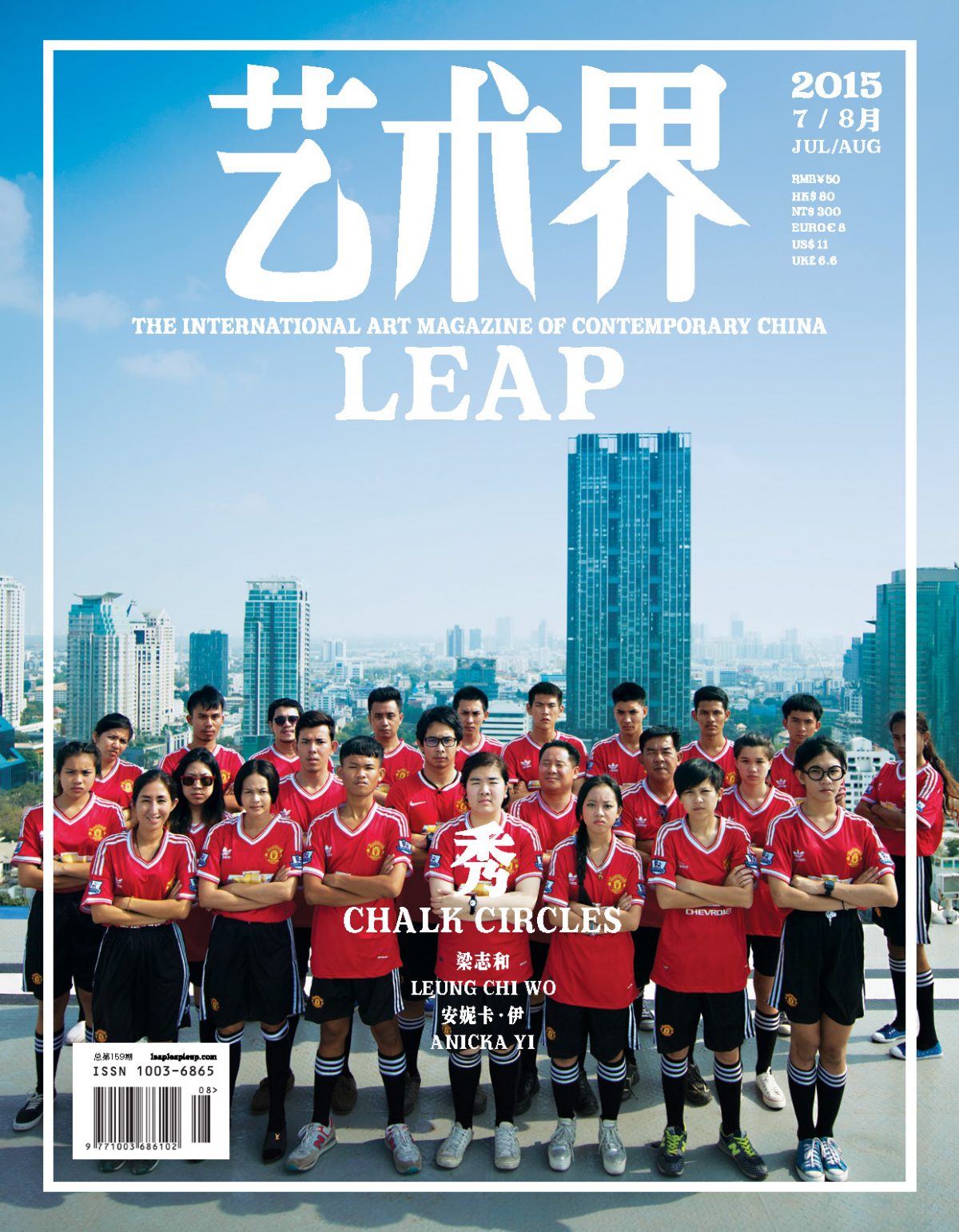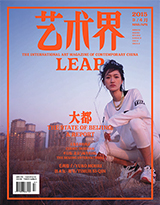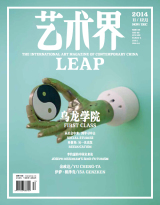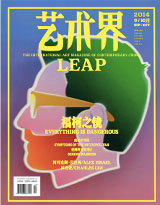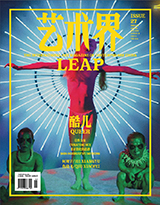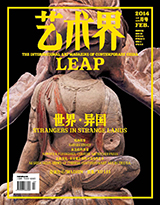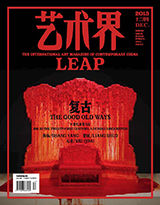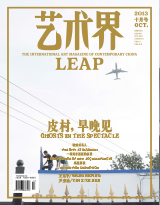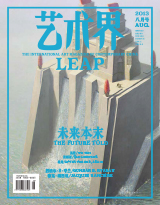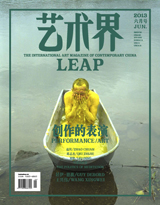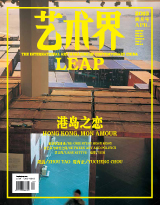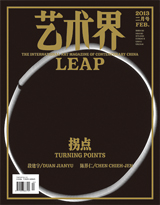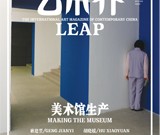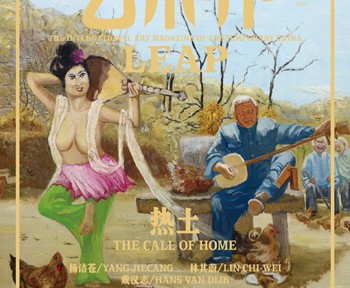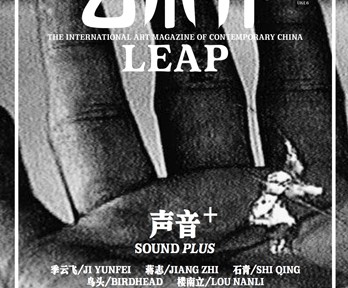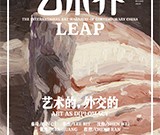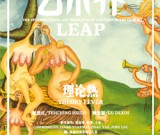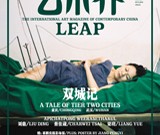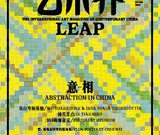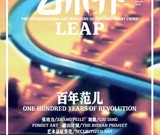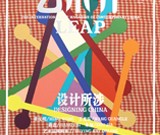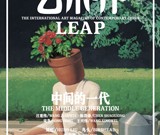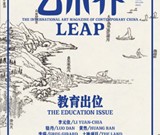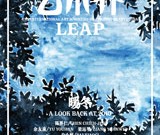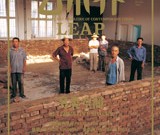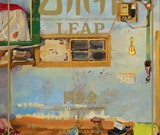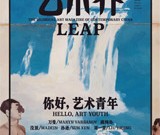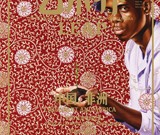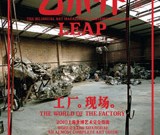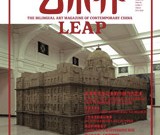Contemporary art always encompasses various disciplines. As art becomes a central part of mainstream culture in China and elsewhere, our plea is that it can contribute in a subcultural sense—not necessarily as the politically vigilant gadfly it was once imagined to be, but as a challenger of a new type. LEAP 33’s cover package “the Ends of Culture” stems from our observations on subculture. The premise is simple: rather than approaching art through cultural and conceptual matrices, we read it through its objects, artifacts, and images. In this cover package, we provide a cluster of keywords that act as a conduit towards the edge of the cultural imagination; like the catalysts and enzymes that encourage a system to grow from within, we hope to create the conditions for the creation, misinterpretation, disruption, and total collapse of an entire cognitive structure.
In addition to the cover feature’s 43 entries of subcultural keywords, this issue’s middle section includes the inaugural edition of LEAP Forum. LEAP Forum / Venice 2015: New Pavilions for a Global Asia brings together artists, curators, and other participants in projects across Venice—from the international exhibition to the national pavilions and collateral shows—to discuss and explore the rapidly changing state of Asian visual culture in the world today. Also featured are two in-depth artist profiles. Colin Siyuan Chinnery analyzes the ways artist Wang Yin incorporates Chinese avant-garde theater and modern culture into his paintings, drawing up a narrative of contemporary China’s cultural ideology and national memories. Matthew Shen Goodman offers an incisive account of recent Hugo Boss Prize winner Paul Chan’s practice, and his tongue-in-cheek attitude towards the art world.
In our top section, “Videos You Didn’t Finish Watching” looks at modern urbanites’ anxiety and fear about the future through artist Wong Ping’s work. In “New Directions,” Venus Lau analyzes the intricate relationships between nature and its visual representations in Berlin-based artist Katja Novitskova’s practice. “On Canvas” lays out the source materials for artist Xie Nanxing’s paintings. Huang Chien-hung discusses the Japanese humanoid persona Hatsune Miku from the perspectives of sociology, conceptual art, and commerce in “Required Reading.” “Old Fashioned” chronicles the now-defunct avant-garde manga magazine Garo’s history against the sociopolitical backdrop of post-war Japan.
This issue’s bottom section features a total of 14 exhibition reviews, including “Simon Denny: The Innovator’s Dilemma” at MoMA PS1, “South by Southeast” at Osage Gallery, Hong Kong, “Koki Tanaka: A Vulnerable Narrator” at Deutsche Bank Kunsthalle, and Wuhan Wanlin Art Museum’s inaugural exhibition “Fusion: Modern and Contemporary Chinese Art Since 1930,” as well as other major international exhibitions. Meanwhile, you will find reviews of new work and solo exhibitions in China from artists Olafur Eliasson, David Hockney, He An, Double Fly, Cheng Ran, Liu Shiyuan, Tao Hui, Lu Pingyuan, among others.
TOP
P028 VIDEOS YOU DIDN’T FINISH WATCHING WONG PING: TO THE WONDERLAND
TEXT / Yung Ma
Naughty and strange, maybe even obscene: this is the highly stylized, animated wonderland constructed by Wong Ping, where innocence and desire coexist comfortably without contradiction.
P032 CONFERENCE ROOM ARTISTS’ SCIENCE
P036 BOOKSHELF
ROADWAY OBSERVATION Reviewed by Roan Ching-yueh
A DISCOURSE ON HOUSEHOLD ELECTRONICS Reviewed by Zhao Wen
P040 NEW DIRECTIONS KATJA NOVITSKOVA: PLASTIGLOMERATES OF IMAGES
TEXT / Venus Lau
Katja Novitskova’s work does not discuss nature, but rather how nature is interpreted and how the development of the visual sense has been affected by nature; she outlines the phylogenetics of the human-nature visual interaction.
P044 ARTI-FACT A DOOR BETWEEN DIMENSIONS: HA BIK CHUEN AND THE ARCHIVE AS PRACTICE
TEXT / Phoebe Wong
P048 ON CANVAS XIE NANXING: BESIEGED BY MATERIAL
TEXT / Song Yi
Xie Nanxing is continuously manufacturing materials, not in order to form a picture, but rather its opposite: he wants to cut off the audience’s experience, making us aware of the fact that what we are looking at is not a painting.
P052 UNITY OF ACTION ONE MAN’S PAPER RAD
TEXT / Song Yi
P056 REQUIRED READING BACK TO THE CROWD-SOURCED FUTURE OF HATSUNE MIKU
TEXT / Huang Chien-hung
Contemporary art can look to Hatsune Miku for its sense of collective creativity—collective not in the sense of being homogenous, and not based in identity, but rather in that each individual can create independently within a mutually constituted network.
P060 OLD-FASHIONED THE GARO ERA
TEXT / Liu Xing
Garo was destined to become a centerpiece of the student movements of the 1960s and early 70s, continuing manga’s expansion into new and unexplored realms.
P064 SHOP TALK KYUNGAH HAM: RESTITCHING POLITICS
TEXT / Lai Fei
P068 CROSSOVER
BEARING WITNESS: SWISS DESIGN AND CHINESE CRAFT
MODERN ART: KEYS TO A PASSION
ASIAN ART PILGRIMAGE: A CENTURY OF COLLECTING
MIDDLE
COVER FEATURE
Rather than approaching art through cultural and conceptual matrices, we read it through its objects, artifacts, and images. In this cover package, we provide a cluster of keywords that act as a conduit towards the edge of the cultural imagination, hoping to create the conditions for the creation, misinterpretation, disruption, and total collapse of an entire cognitive structure.
P076 ALCOHOLISM
P078 ALT LIT
P079 ANGRY BIRDS
P081 ART JEWELRY
P082 BAD PAINTING
P083 BITCOIN
P084 BLOBS
P086 BODY MODIFICATION
P088 CABBAGE
P089 COSPLAY
P090 CRASH EROTICS
P091 DARKNET
P092 DOLLS DOLLS DOLLS
P093 EXHIBITIONIST
P094 FUNERARY GOODS
P096 GASMASK
P097 GENETICS
P099 GIRLS
P101 GRAFFITI
P102 IMAGINED NETWORKS
P104 INTERNET RAP
P106 LATEX FETISH
P107 LIQUIDITY
P109 MASSAGE CHAIRS
P110 OUR MODERN TOTEMS
P112 NAILS
P113 NAÏVE ART
P115 NEW CELEBRITY
P116 ROOMBA
P117 SAILOR MOON
P119 SELFIE
P120 SEX DOLLS
P121 SHANZHAI
P123 SKIN HEAD
P124 SOCKETS
P126 TAOBAO AESTHETICS
P128 TEAPOT
P129 TECHNOSENSUAL
P130 UTILITY FASHION
P132 VAN MOD
P133 VAPORWAVE
P135 VIDEO LANDSCAPE
P136 WOMEN IN COLOR
P138 LEAP FORUM/VENICE 2015
P142 PORTFOLIO
MING WONG: NEXT YEAR
HU XIANGQIAN: SECRET MISSION
P156 ON WANG YIN: TOWARDS A POOR PAINTING
TEXT / Colin Siyuan Chinnery
It is no coincidence that Wang Yin’s painting lacks a richness of color, texture, or style—it’s because, like Grotowski, he aims for quite the opposite.
P166 PAUL CHAN: ENTHUSIASM TRAP
TEXT / Matthew Shen Goodman
Instead of an absolute nihilism about the role of art today, Chan leaves the door open: “For art to become art now, it must feel perfectly at home, nowhere.”
BOTTOM
P180 SIMON DENNY: THE INNOVATOR’S DILEMMA, MOMA PS1, NEW YORK
Reviewed by Mike Pepi
The cat-and-mouse game of leftist refusal only underscores how Denny’s work makes an uncomfortable challenge for art audiences wedded to oppositional critique.
P182 SOUTH BY SOUTHEAST, OSAGE GALLERY, HONG KONG
Reviewed by Wu Mo
P184 SIMRYN GILL: HUGGING THE SHORE, NTU CENTRE FOR CONTEMPORARY ART SINGAPORE
Reviewed by Bruce Quek
P186 KOKI TANAKA: A VULNERABLE NARRATOR, DEUTSCHE BANK KUNSTHALLE, BERLIN
Reviewed by Zhang Hanlu
Experiencing catastrophes that shake human civilization, it is beyond apparent that life itself is politics. This is why Tanaka has frequently come into view after the 2011 Tōhoku earthquake and tsunami.
P188 OLAFUR ELIASSON: WE HAVE NEVER BEEN DISEMBODIED, VITAMIN CREATIVE SPACE, GUANGZHOU
Reviewed by Song Yi
P190 HE AN: ARMENIA, TANG CONTEMPORARY ART CENTER, BEIJING
Reviewed by Robin Peckham
By turns industrially seductive and psychologically repelling, the constellation of seven small spaces created by seven forcefully anchored objects make for a maddeningly difficult intellectual maze, but they punch hardest on a tactile level.
P192 DOUBLE FLY, SPACE STATION & TODAY ART MUSEUM, BEIJING
Reviewed by Zhang Xiyuan
Compared to the portion of the Chinese contemporary art world that caters to a more mature, elitist niche market, Double Fly set an example with their freewheeling trial-and-error approach, regardless of the bottom line.
P194 CHENG RAN: IN COURSE OF THE MIRACULOUS, GALERIE URS MEILE, BEIJING
Reviewed by Xi Winkler
Cheng Ran appears as a greedy and conceited collector in his own pieces, showcasing his repertoire across cultures. The concepts that define much of his work are not overly complex; their value is inherent to a specific cultural identity.
P196 LIU SHIYUAN: LOST IN EXPORT, WHITE SPACE, BEIJING
Reviewed by Yang Zi
P198 TAO HUI: 1 CHARACTER & 7 MATERIALS, AIKE-DELLARCO, SHANGHAI
Reviewed by Lu Jing
P200 LU PINGYUAN: UNEXPECTED DISCOVERY, MADEIN GALLERY, SHANGHAI
Reviewed by Lu Mingjun
P202 PERHAPS: DENG YUEJUN, JIANG ZHUYUN, ZHANG LIAOYUAN, REN SPACE, SHANGHAI
Reviewed by Yao Mengxi
P204 FUSION: MODERN AND CONTEMPORARY CHINESE ART SINCE 1930, WANLIN ART MUSEUM, WUHAN
Reviewed by Wu Jianru
P206 DAVID HOCKNEY: THE ARRIVAL OF SPRING, PACE BEIJING
Reviewed by Lu Mingjun
